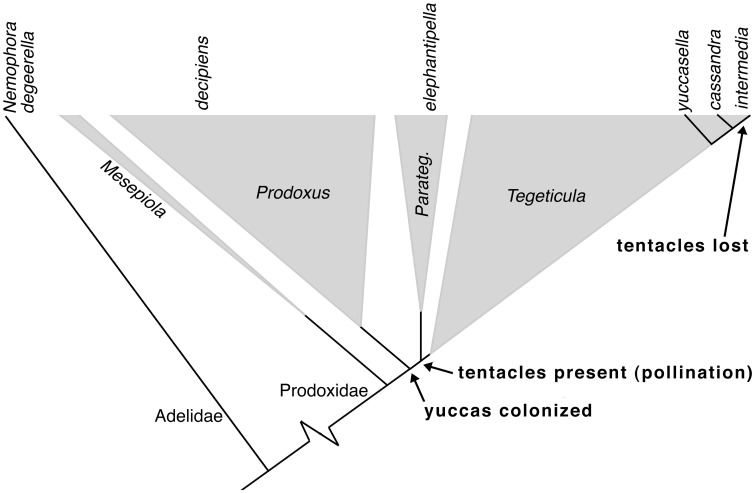Figure 1.
Phylogenetic positions of the six species used in the study. Names of species used are given at top. Triangle width reflects species richness for the three yucca-feeding genera and their sister group. Spacing between prodoxid genera and the Tegeticula species triad is proportional to time, and the bottoms of triangles give deepest known radiations within each genus. The deepest split (Mesepiola vs. others) is estimated to 44.1 ± 10.6 million years ago. The internode from the Prodoxus-pollinator genera split to the pollinator genera split, along which the tentacle evolved, is so short that estimated ages of the three genera overlap, thus the uniform tentacle seen in all pollinator moths must have evolved very quickly. Data are from refs. 5 and 7, and O.P. and M. Balcázar-Lara, unpublished data.

